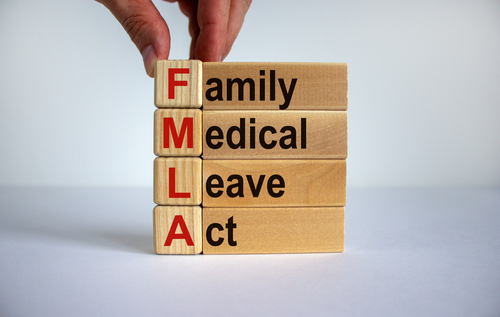John Stewart
Fri, 08/04/2023
August 5, 2023, marks 30 years from the date the Family and Medical Leave Act (“FMLA”) of 1993 went fully into effect. Signed into law on February 5, 1993, by newly-inaugurated President Bill Clinton, the FMLA gave American workers the right to take time off work to care for themselves and their family members, without giving up their livelihood in the process. The tremendous success of the FMLA deserves celebrating, but the fight to improve family and medical leave rights in this country is not over.
Prior to the FMLA’s enactment, employees suffering from serious health conditions (and employees with family members suffering from serious health conditions) regularly had to choose between taking the time off work they needed to seek treatment, recover, or attend to the needs of a family member, and keeping their jobs. For those whose employers provided the health insurance they needed to get medical care, this was no choice at all.
The FMLA, for the first time, gave covered employees a federally-protected right to take unpaid leave—for up to 12 weeks—in order to care for a family member, bond with a new child, or recover from their own serious health condition, and still have their job waiting for them when they returned. In the words of the former President of the National Partnership for Women & Families, Debra L. Ness, the impact of the FMLA has been “enormous,” letting “tens of millions of workers take leave when they needed it the most, and changing the culture in this country. Those are women who needed medical care during difficult pregnancies, fathers who took time to care for children fighting cancer, adult sons and daughters caring for frail parents, and workers taking time to recover from their own serious illnesses. Because of the FMLA, their health insurance continued and their jobs were waiting when they returned to work.”
Now 30 years in the proving, the FMLA represents a great success story for progressive labor standards, which has all but silenced its once-outspoken detractors. First introduced in Congress in 1984, the FMLA would be introduced again in each year that followed, before finally making it to the desk of President George H.W. Bush in 1991. President H.W. Bush vetoed the bill, in 1991 and again in 1992, citing concerns over the costs that the FMLA would supposedly place on businesses and the economy.
But, in the years since President Clinton signed the FMLA into law, the economic boogeyman predicted by its critics never actually appeared. In fact, in a 2012 Department of Labor survey, 91 percent of employers reported that complying with the FMLA had either no noticeable effect or even a positive effect on business operations, such as its influence on employee absenteeism, turnover, and morale. In a follow-up to that survey conducted in 2018, the Department of Labor found that 95 percent of worksites surveyed reported positive or neutral perceptions of the overall effect of the FMLA on productivity, profitability, and employees.
Nevertheless, there remains significant room for improvement in the area of workplace protections around family and medical leave. For instance, despite its many benefits, the FMLA does not require that employers pay their employees while out on FMLA-qualifying leave. Efforts to remedy this shortcoming federally have so far been unsuccessful but are ongoing. For example, the Family and Medical Insurance Leave (“FAMILY”) Act of 2023, first introduced in 2013, would secure the right to receive partial income (up to 85% of normal wages, for the lowest-earning employees) for the 12 weeks of leave provided by the FMLA, among several other important expansions of FMLA-related rights.
Even though efforts to expand the FMLA directly have not yet borne fruit, a growing number of States and local governments have filled in the gaps with their own paid leave laws. For example, paid family/medical leave is required or will soon be required for covered employees under the laws of California, Colorado, Connecticut, Delaware, the District of Columbia, Maryland, Massachusetts, Minnesota, New Jersey, New York, Oregon, Rhode Island, and Washington state. Hopefully, as this trend continues, the lessons learned from new state paid leave programs will lead to an expansion of medical and family leave rights at the federal level. Meanwhile, state laws requiring paid family and medical leave—and in particular the more recently enacted laws—can easily escape notice, by employers and employees alike.
If you have questions about your right to take protected leave under the FMLA or state law, or believe you have been denied any other protected employment benefits, please reach out to MSE at [email protected].

